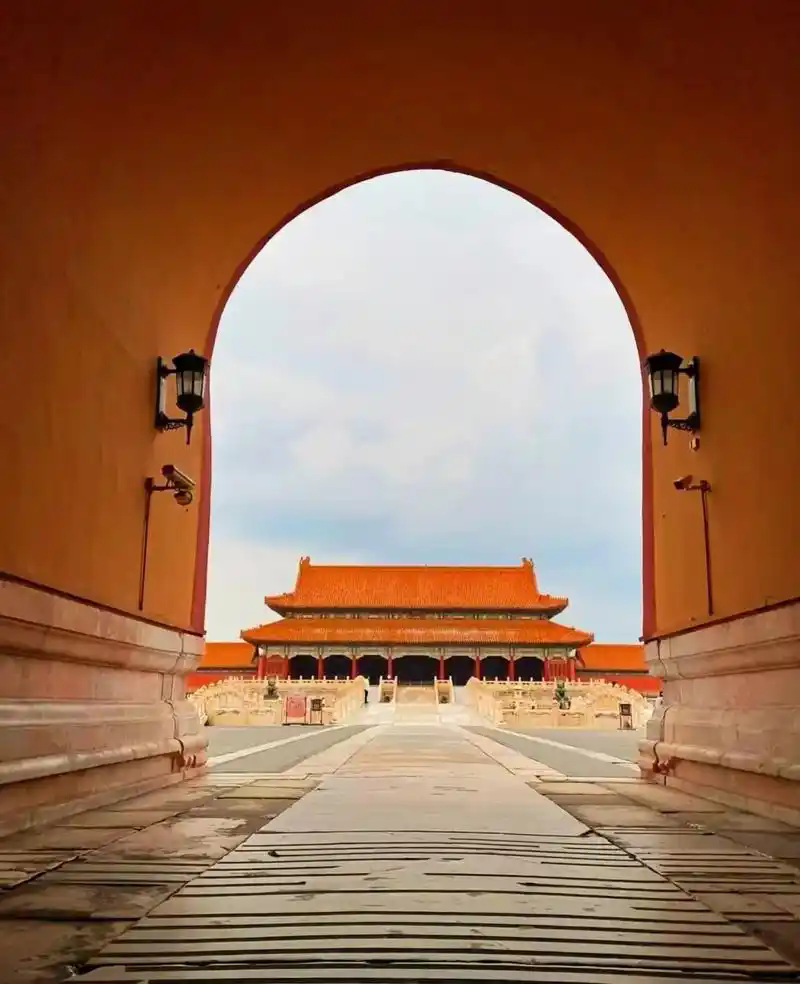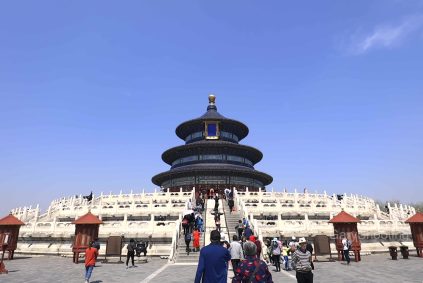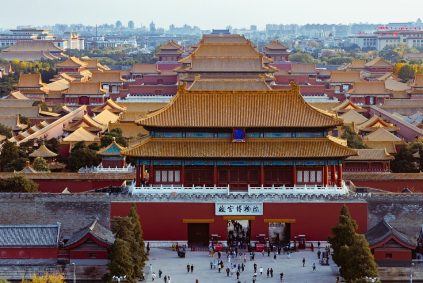During the trip to Beijing, the safety of personal belongings is of vital importance. To prevent the loss, theft or damage of property, tourists need to enhance their prevention from three aspects: preventive measures, key scenarios and emergency handling. The following are specific suggestions:
First, preventive measures: Proactively reduce risks
Reduce the exposure of valuable items
Cash and documents: Only carry necessary cash. Keep your ID card, passport and other documents separately (for example, keep one in the hotel safe and one in your carry-on bag).
Electronic devices such as mobile phones and cameras should be kept away from the sun for a long time. When not in use, put them in your bag promptly.
For example, scenic spots such as the Forbidden City and the Great Wall have a large number of visitors. It is recommended to carry a backpack in front of your chest or use an anti-theft bag.
Choose a safety backpack and locks
Give priority to using backpacks with zipper clasps and cut-resistant fabric, and avoid using open shoulder bags or single-shoulder bags.
When staying at the hotel, use a suitcase combination lock and store valuable items in the hotel safe.
Data: The Beijing Municipal Public Security Bureau once reported that in cases of pickpocketing in scenic spots, the proportion of stolen open bags exceeded 60%.
Be wary of being approached by strangers.
Stay alert to strangers who initiate conversations, sell goods or “ask for help”, and avoid revealing your itinerary or address.
Case: There was once a theft case on Qianmen Street where people used the pretext of “asking for directions” to distract their attention and then committed the theft.
Second, key scenarios: Targeted prevention
Scenic area tour
Crowded areas: At popular scenic spots such as the Forbidden City and the Temple of Heaven, when queuing or taking photos, place your bag in front of you to avoid having your back to the crowd.
Photography safety: When using a selfie stick, pay attention to the distance between the device and your backpack to prevent others from taking advantage of it.
The steep section of Badaling Great Wall is crowded with tourists. There was once an incident where a tourist’s backpack was knocked down and their belongings were scattered and lost.
Public transportation
When getting on or off the subway or bus, hold your mobile phone or wallet tightly to prevent them from falling when caught in the door.
For taxis or online-hailing vehicles: Check the seats and the trunk before getting off to avoid leaving any luggage behind.
Data: According to statistics from the Beijing Subway police, pickpocketing cases in carriages during the morning and evening rush hours account for 40%.
Catering place
When having meals: Hang your backpack on the inner side of the chair back or place it between your legs. Do not put valuable items in the pockets of your coat.
When making a payment: Prepare change or a mobile payment code in advance to avoid exposing your belongings when rummaging through your wallet.
Case: There was once an incident in Nanluoguxiang Snack Street where a tourist’s backpack was taken away while having a meal.
Accommodation place
Hotel: After check-in, check the security of the door lock. Valuables should be stored in the front desk safe (some hotels offer free safes).
Homestay/youth hostel: Use a personal padlock to secure your suitcase and lock important items in the cabinet at night.
Analogy: If property is lost in a hotel room and not stored in a safe, it is rather difficult to claim compensation.
Third, emergency response: Reduce losses and impacts
Dealing with Lost Property
Report to the police immediately: Call 110 or go to the nearest police station to report the case, providing the characteristics of the item, the time and place of loss.
Loss reporting and reissuance:
Bank card: Call the bank’s customer service hotline to report it lost. Some banks support one-click freezing through the APP.
Documents: Contact the Chinese embassy or consulate (for foreign tourists) or the local police station of your household registration to apply for a temporary document.
For example, after a tourist lost their passport on Wangfujing Pedestrian Street, they could apply for a travel document through an expedited service at the embassy, which took three working days.
Electronic devices have been stolen and dealt with
Remote locking: Locate or lock the device through the “Find Device” function of the mobile phone manufacturer (such as Apple’s “Find iPhone”).
Change passwords: Immediately change the passwords of payment software and social media accounts to prevent information leakage.
Data: The Beijing Anti-Fraud Center warns that if the SIM card of a stolen mobile phone is not reported lost in a timely manner, the risk of unauthorized use within two hours exceeds 70%.
Insurance claim settlement
Before traveling: Choose travel insurance that covers “lost luggage” and “theft of personal belongings”, and keep shopping invoices, alarm receipts and other vouchers.
Claim process: Contact the insurance company within 24 hours after the accident and submit the materials as required.
Analogy: A tourist was compensated 80% of the loss through insurance when his suitcase was stolen at the airport.
Fourth, supplementary suggestions for distinctive tourism scenes in Beijing
Night markets and performances
At night markets such as Guizi Street and Sanlitun, avoid carrying large amounts of cash and cover your password when using mobile payment.
When watching the performance, do not casually tuck your coat over the back of the chair as the inner bag is prone to theft.
Tour of Hutongs
When renting a shared bike, put your backpack in the basket and secure it with a chain, or carry it with you.
Avoid following strangers into remote alleys to “visit quadrangle courtyards”.
Child safety
Wear anti-slip wristbands for children or cards with the parents’ contact information written on them.
Take good children’s hands in shopping malls and scenic spots to prevent them from running alone or coming into contact with strangers.
Conclusion
Tourism safety in Beijing should be based on the principle of “prevention first and emergency response second”. Tourists can significantly reduce risks by reducing exposure to their belongings, choosing safety equipment and being vigilant about key scenes. In case of emergencies, timely reporting to the police, reporting loss and making claims can minimize losses to the greatest extent. Only when civilized tourism and safety awareness go hand in hand can one fully enjoy the charm of the capital.
















